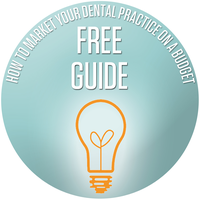Technological advancements keep changing the way we approach healthcare. Researchers are saying the next big thing to bring change to eye care are “smart” contact lenses. Your vision patients may have a new option to track diabetes and other health problems. Be prepared to walk them through what this means.

"Smart contact lenses" could perform chemical tests on the content of tears, for purposes such as monitoring blood glucose levels without needles. These lenses could potentially communicate with other devices and produce ongoing reports. This would allow the wearer to receive an alert when levels go too high or low. A signal needs power, though, and it's hard to put much power into a device that small.
Researchers at the University of Washington have found a possible solution. They've devised a method called "interscatter communication," which modifies existing signals rather than generating new ones. The smart lens would receive a Bluetooth signal on its tiny antenna and convert it to a Wi-Fi signal, adding its own information to the packet. Since it's using an existing signal rather than generating one, the power required is just a few tens of microwatts. A tiny solar-powered battery could supply that.
The lens would actually reflect the modified Bluetooth signal rather than rebroadcast it, allowing a more focused signal but requiring the phone to be properly positioned. This can be an opening to talk to your patients about how screens impact their vision and how to best use this new technology without compromising their vision health.

As the population grows older, diabetes is growing more common. Failure to keep blood sugar levels under control can lead to serious complications. Existing methods of monitoring blood glucose are inconvenient, requiring an implanted device or frequent skin jabs. A passive device that just requires the patients to hold the phone in front of their eyes would present fewer problems.
Although this advancement may be several years away, it’s a good opportunity to check in with your patients about their overall health because in due time, this advancement could potentially make life much easier for people with diabetes and other health issues.



